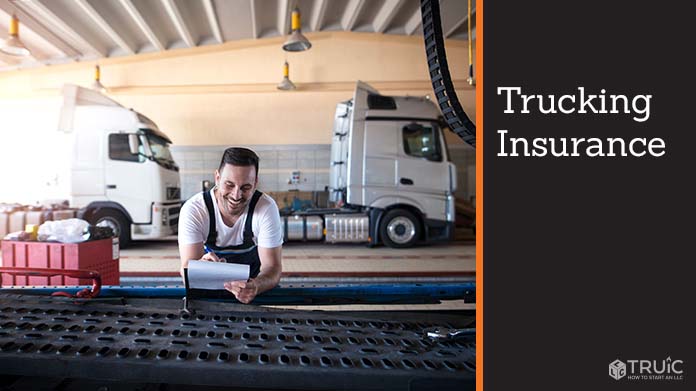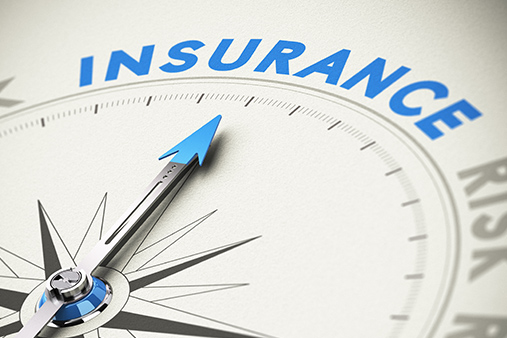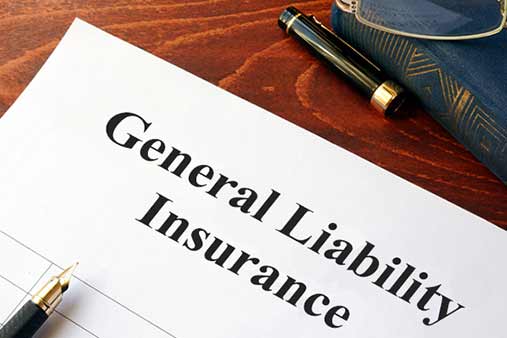What Is Commercial Trucking Insurance?
Commercial trucking insurance is designed to meet the insurance needs of trucking companies and owner-operators.
This type of business insurance covers primary liability in the event of an accident. It also provides additional coverage for other types of damages. Commercial trucking insurance is often required to obtain a commercial driver’s license because it is needed to protect other people and their property if a truck causes injuries, property damage, or death.
Find out the real cost of Commercial Trucking Insurance. Call 833-536-1478 now, or generate a free quote

What Kind of Insurance Do Truck Drivers Need?
Truck owner-operators need insurance to cover themselves if their truck is involved in an accident or they suffer other types of financial loss. Trucking insurance for owner-operators typically provides the following types of coverage:
- Primary liability: Covers damage the owner-operator causes to other people or property in an accident.
- General liability: Covers damage caused by a driver operating on property belonging to someone else, like a truck stop, loading dock, or delivery location. This also covers damages resulting from delivery errors.
- Physical damage liability: Helps repair or replace the owner-operator’s truck or other equipment if it’s damaged or stolen.
- Motor truck cargo: Protects the owner-operator’s cargo if it’s stolen or damaged for whatever reason.
- Trailer interchange: Covers a trailer the owner-operator doesn’t own and uses under a trailer interchange agreement.
- Non-trucking liability: Covers truck-related injuries or property damage while the owner-operator isn’t making an official delivery.
- Uninsured/underinsured motorists: If the owner-operator is involved in an accident caused by another driver without sufficient insurance, this coverage will pay for any damages the other driver’s insurance policy doesn’t.
- Medical payment: Covers medical bills from injuries to the driver or a passenger in the truck.
Trucking Company Insurance
Business insurance for trucking companies offers protection if one of the company’s drivers is involved in an accident or otherwise causes harm to people or property.
The exact policy options a trucking company needs depend on what kind of trucks its drivers use, what they haul, how much experience they have, and other factors. At a minimum, the company will need primary liability insurance to provide coverage if a person is injured or property is damaged by one of its trucks.
Trucking companies also need general liability insurance, which covers damages from lawsuits involving allegations of libel, slander, or false advertising against the company.
Ready To Protect Your Business?
The best way to ensure that you’re getting the proper protection at the best price is to speak to a business insurance agent or get a quote online.
What Trucking Insurance Doesn’t Cover
Trucking insurance may not cover all damages incurred in an accident, including:
- Vehicles not considered trucks under the policy. These can include hearses, buses, limousines, cement trucks, ice cream trucks, and passenger vans.
- Injuries to the driver or damage to the truck. Injuries to a driver who works for a trucking company would be covered under workers’ compensation insurance. Damage to the truck is only covered if the driver or trucking company purchased physical damage coverage, which is optional.
- Reduced income following an injury. A driver who’s injured in an accident and can’t work will need business interruption insurance to cover the loss of income.
- Lost cargo. This will only be fully covered if the driver or trucking company purchased sufficient lost cargo insurance prior to the loss.
How Much Does Trucking Insurance Cost?
Commercial trucking insurance can be expensive. For example, owner-operators with their own authority can expect to pay around $8,000 to $14,000 a year in premiums for primary liability coverage. An owner-operator who has a permanent lease with a motor carrier will pay less – around $2,000 to $5,000 a year – because the trucking company pays for some coverage. In addition, owner-operators with their own authority and trucking companies spend an average of $450 to $1,000 a year for $1 million on general liability coverage in addition to primary liability coverage.
There are a variety of factors that influence the price of commercial trucking insurance. These include:
- The cost of the truck
- What the truck is hauling
- How old the driver is, how long they have held a commercial driver’s license, and their driving record
- How far the truck is driven
- The owner-operator’s credit history
- Whether premiums are paid monthly, annually, or on some other schedule
Find the Most Affordable Coverage
Visit our Low-Cost Insurance Review to find the ideal balance of affordability and coverage.
Trucking Insurance Frequently Asked Questions
Some trucking businesses will benefit from coverage for office supplies, equipment, and loss of income after a covered event. You can learn more about the types of business insurance in our guide.
Truck drivers need commercial trucking insurance to cover them for damages caused by an accident. Covered damages include personal injuries and property damage, among others.
Owner-operator insurance can cost $8,000 to $14,000 a year for primary liability coverage. On the opposite end of the spectrum, independent for-hire drivers may be able to buy primary liability coverage for around $20 a month.
Many insurance companies offer various discounts for trucking insurance. These can include discounts for companies that have been in business for more than three years, use electronic logging devices and allow the insurance company to access the data, and bundle other types of business insurance with trucking insurance. For-hire truckers who have a commercial driver’s license are also typically eligible for discounts.


